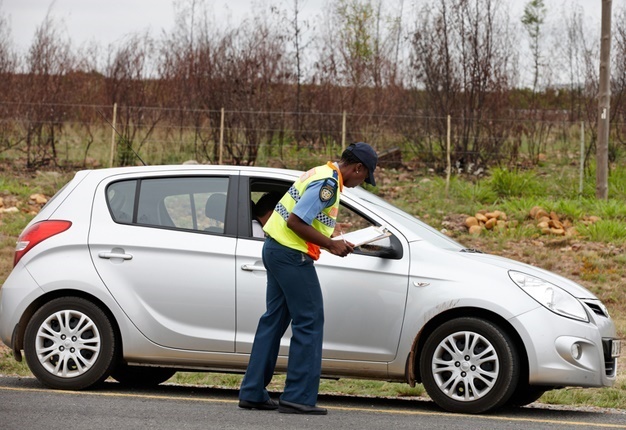
It is common knowledge that South Africa has incredibly high road fatalities - a great burden to government and the health profession.
Ubiquitous road awareness campaigns have failed to curb the prevalence of road deaths and it has recently emerged that these campaigns are not having the desired impact.
Simple cost-benefit analysis postulates that these campaigns should either be modified for targeted audiences or alternatively, we should explore more effective road awareness programmes.
According to Vera Nagtegaal, Executive Head of Hippo.co.za, the new demerit system for SA road users, in theory, could significantly reduce road fatalities by imposing punitive action on motorists who do not adhere to the rules of the road.
Does the demerit system have merits?
Despite its good intentions, the demerit system can also pose a significant threat to the insurance industry, which traditionally has low penetration among motor and other vehicle class owners.
A few years ago, the Automotive Association (AA) estimated that 65% of all vehicles on our roads are uninsured. Nagtegaal explains that implementing the demerit system has numerous implications for the insurance industry: "The suspension of a motorist’s license is likely to increase their insurance premiums or excess, influenced by greater perceived risk on the insurer’s part."
More questions left unanswered
This poses further applicable considerations: How will an insured motorist afford higher premiums or excess when their license gets suspended? Will the motorist with the suspended license forfeit their insurance cover and thereby be precluded from obtaining vehicle insurance from any other service provider? How will this affect the insurance industry at large? A reduction in the industry’s size will invariably lead to job losses – how will these individuals be absorbed into the labour market?
What do you think of the driver demerit system? Email us
Campaigns need better targeting and better consultation with industry The top priority is reducing South Africa’s stubbornly high road fatalities and accidents.
According to Nagtegaal there have been several deficiencies in road awareness campaigns launched over the years: "These campaigns have simply targeted motorists instead of incorporating education programmes also aimed at teaching pedestrians about road safety and taking responsibility for their individual conduct when making use of road facilities."
Pedestrians accounted for the largest proportion of total road fatalities in 2016 at 38%, according to the Road Traffic Management Corporation (RTMC). Road casualties among passengers and drivers came in at 33% and 26% respectively. Nagtegaal points out that what is evident is that a more holistic educational approach is needed to eradicate reckless driving by motorists, and encourage pedestrians to exercise greater caution when crossing our roads.
10 things you should know
Chairman of Justice Project South Africa NPC, Howard Dembovsky, lists 10 things SA motorists should know about the Aarto Act and the points-demerit system:
1. The Aarto Amendment Bill, if/when it is signed into law, will apply everywhere in South Africa.
"The 'old' system of issuing and prosecuting traffic fines will fall away. There will be no summonses to appear in court, so waiting for one will be both, fruitless and severely detrimental to you," says Dembovski.
2. Under the Aarto Act, there is no need for a traffic authority to prove your guilt.
"You are regarded as being guilty, unless you prove that you are not. It is your duty to act if/when you are served with an infringement notice. Traffic fines are treated as little more than invoices," says Dembovski.
3. The Amendment Bill allows infringement notices and other Aarto documents to be sent to you by any electronic means.
"This includes email, SMS and social media and any document sent is deemed to be served on you 10 days after it is sent, even if it is posted," says Dembovski.
4. The Aarto Act starts off with an infringement notice, which is followed by a courtesy letter and finally, if you take no action, an enforcement order. An enforcement order blocks you from renewing your vehicle licence disc/s, driving licence card and, if you have one, professional driving permit.
5. All the "elective options" available to you must be exercised within 32 days of the service, or presumed service of an Aarto document. A 50% discount on the fine applies for 32 days from the service or presumed service of an infringement notice. On the 33rd day, the discount falls away. No reinstatement of the discount, or other discounting is allowed.
6. If you were not the driver at the time of an alleged infringement you may only nominate the driver within 32 days of the service of an infringement notice.
"Wait one day longer and you will have to take the rap for the other person. You may make a written representation but need to bear in mind that what you say in that representation binds you in the appeal process, if your representation is unsuccessful," says Dembovski.
7. Demerit-points are applied to your driving licence when:
- you pay the fine, regardless of whether the 50% discount still applies or not;
- you apply to pay in installments; or
- an enforcement order is issued.
READ: New road laws for SA: 'Aarto Bill in its current form is flawed' – AA
8. All licensed motorists starts with zero demerit-points. Different numbers of demerit-points apply to each infringement. They also apply to offences.
These are prescribed in Schedule 3 of the Aarto Regulations. The maximum number of demerit-points you may incur and still retain your driving licence is 12.
If you exceed 12, your licence is suspended for three months for each demerit-point over 12. e g 15 demerit points is a suspension of nine months.
9. Demerit-points diminish at a rate of 1 demerit-point for each three months. There is no other way to reduce your demerit-points.
Compliant drivers cannot accumulate a credit balance, or merit-points. The points-demerit system is what its name implies. It is not a "rewards system".
10. During the suspension period, you may not drive.
If you do and you are caught, you will be charged with a criminal offence and can face imprisonment.
If your driving licence has been suspended twice and you again accumulate more than 12 demerit-points, your driving licence will be cancelled.
Only once the third prohibition period has elapsed, you will have to start from scratch, with a learner's licence, if you want to drive again.




 Publications
Publications
 Partners
Partners



 Image: Arrive Alive
Image: Arrive Alive







